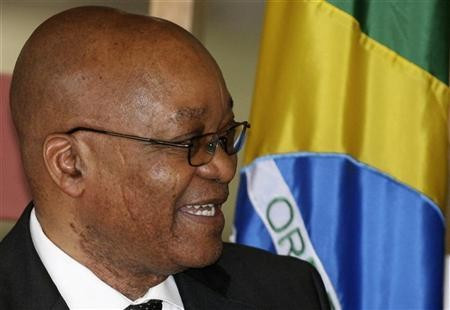Durban Climate Change Summit: Is It Doomed to Fail?

The United Nations Climate Change Conference starts in Durban, South Africa, on Monday and is expected to be opened by President Jacob Zuma.
The event, formally known as the 17<sup>th Conference of the Parties (COP17), has attracted delegates from nearly 200 countries in hopes of reaching a new collective global agreement on climate change.
There were 11,810 delegates approved to come to South Africa for the conference, said the Department of Home Affairs. This includes several heads of state of government, ministers, U.N. officials and members of civil society and journalists.
During a media briefing in Durban on Sunday, Christiana Figueres, executive secretary of the United Nations Framework Convention on Climate Change, said new research and findings were "sounding alarm bells" for urgent action to halt global warming.
There are two very important backdrops to the next fortnight's negotiations, she said.
"The first has to do with a growing momentum for action and the other is the new research and the findings that are sounding alarm bells for urgent action."
Figueres said recent findings all warned of rising danger levels.
These included reports by the World Meteorological Organisation, the Intergovernmental Panel on Climate Change, the International Energy Agency and the U.N. Environment Programme.
Figueres said governments had come to COP17 "fully aware" of the importance of this agreement and the expiry of its current commitment period at the end of 2012.
But many observers and critics believe a firm agreement is unlikely on a second commitment period, and say that the conference will likely only set a foundation for it to happen.
The talks in Durban are the last chance for officials to set another round of targets before the first commitment period of the Kyoto Protocol, which committed most developed nations to binding emissions targets, ends in 2012.
The debt crisis across the eurozone and the U.S. makes it unlikely that those regions will provide more aid to execute new measures that could damage their own growth prospects.
Representatives said there may be a political deal struck with a new set of binding targets, but only the European Union, Australia, New Zealand, Norway and Switzerland are likely to sign up.
Any agreement depends on the U.S. and China, the world's highest emitters of greenhouse gases, to settle on a wider binding action deal by 2015, something both nations have resisted for years.
China is reluctant to make any commitments until Washington does while Russia, Japan and Canada say they will not sign up to a second commitment period unless the world's biggest emitters do too.
The conference will run until Dec. 9.
© Copyright IBTimes 2025. All rights reserved.





















